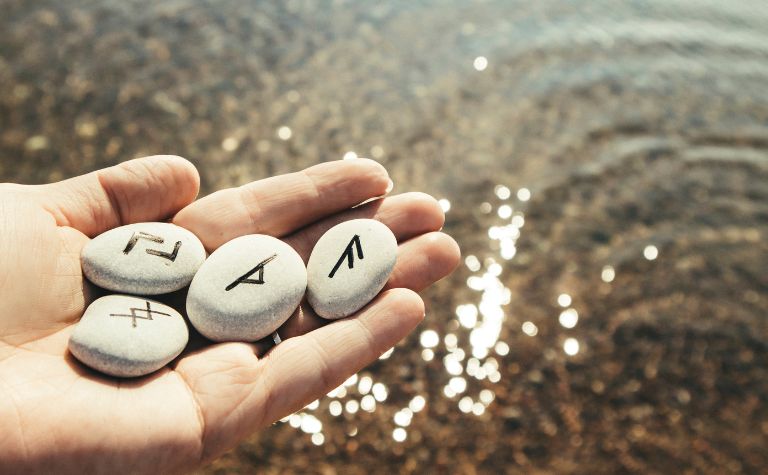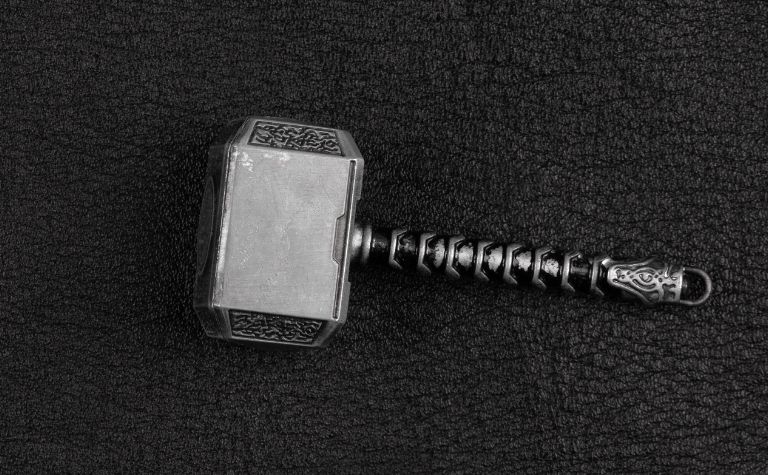Today, Christianity is one of the most widely held religious faiths worldwide, with nearly 31% of the globe being Christian. [1]
With the widespread reach of Christianity also comes the prevailing image of a benevolent god who loves every creature on earth.
What about the Norse gods, though; did they care about people like the Christian God?
The Norse gods cared about people to a certain extent. For example, Odin provided weapons to great warriors that he favored, and Thor had human servants.
Additionally, Odin gave humans an understanding of runes and poetry, and Heimdall came to earth to create humanity’s hierarchy.
This article will explore mankind’s relationship with the Norse gods and highlight some examples of gods interacting with humans.
It will also discuss whether the Norse gods were benevolent and outline how the Norse viewed their gods.
Also, see Does Marvel Own Norse Mythology? to learn more.

Did Norse Gods Interact With Humans?
The Norse gods occasionally interacted with humans when they came to Earth (Midgard) in human form.
More often, they maintained a more ‘give and take’ type of relationship with them. Humans would offer sacrifices to the gods in exchange for the gods’ blessings or favor.
There are few notable stories about gods coming to Midgard and interacting directly with humans, though some do exist.
For example, in the Volsunga saga, Sigurd kills the dragon Fafnir with a sword created by Odin and given to Sigurd’s father, Sigmund. [2]
At his sister’s wedding feast, Sigmund meets a stranger who thrusts a sword into a tree King Arthur-style and claims that any man who can pull it free can have it and be confident that he owns the world’s most magnificent sword in the world.
The man, of course, is Odin, and Sigmund pulls the sword free of the tree with ease.
Because Odin had knowledge of the future and could use Seidr magic to determine a person’s fate, it’s not much of a leap to assume he knew Sigmund would become the sword’s owner.
One can also assume, then, that Odin cared enough about Sigmund, for whatever reason, that he wanted him to have such a great weapon.
Years later, Odin gave his favor to one of Sigmund’s enemies instead and broke Sigmund’s sword so that he couldn’t kill Odin’s new favored human.
Eventually, Odin would revisit Midgard, this time to help Sigmund’s son, Sigurd.
Sigurd goes through many trials to prepare for his eventual destiny of killing the dragon.
In one of these, he must choose his horse, and Odin, in the guise of a human, helps him make the right choice. [3]
From these actions, one can infer that Odin cared about Sigmund’s family line.
Furthermore, the goddess Freya took a human lover named Ottar. He was a faithful worshiper of Freya’s and constantly made sacrifices to her.
Eventually, Freya fell in love with him and took him into her bed.
She also used her magic to turn him into a boar, helping him win a bet. Then, she snuck him into Asgard (still in boar form) so that she could keep him by her side. [4]
Other notable instances of Norse gods interacting with humans include the following:
- Thor and Loki eat dinner with a human family and take the two children as Thor’s servants as payment for the son disobeying his rules.
- Mani (the moon) kidnaps two human children, who now follow her across the sky and will continue to do so until Ragnarok.
- Mundilfari, a mortal man, names his children after the sun and the moon. The gods take offense at this blatant disrespect and come to Midgard to steal his children and throw them into the Heavens.
- Heimdall comes to Midgard and sleeps with numerous humans to create the human hierarchical structure.
Also, see 7 Weapons Mentioned In Norse Mythology to learn more.

Are the Norse Gods Good?
One of the most well-known facts about the Christian God is that he is kind, loving, and benevolent. According to the Bible, all one must do is ask for his forgiveness, and he will give it.
Are the Norse gods as kind?
The Norse gods aren’t benevolent, but they aren’t evil either. They are multi-faceted beings with complex feelings, emotions, motives, and quirks.
They are similar to the Greek and Roman gods in this aspect because all three pantheons were modeled after humans.
At their core, humans are capricious. They are kind and hateful, selfless and selfish, full of love and full of hate, and brave but terrified.
Humans aren’t just one thing; neither are the gods that humans create. That’s why the Norse, Greek, and Roman gods seem human-like.
In the example above, Odin gives Sigmund his nearly unbeatable sword.
However, when his loyalties change, Odin also destroys that sword so that Sigmund will lose to his enemy. Then, in another twist of fate, Odin aids Sigmund’s son.
Therefore, the Norse gods can be benevolent, but they can also be cruel and petty.
With few exceptions, however, their interactions with humans aren’t out of love or hate. Instead, they are purely transactional.
The gods would show their favor to whichever humans gave them the best sacrifices and the best stories.

How Did the Norse View Their Gods?
The Norse viewed their gods as powerful beings who, though not immortal, lived for a very long time.
They imbued them with magical powers and believed the gods would use those powers in their (the humans’) favor if they sacrificed to them appropriately.
The Vikings also believed their gods occasionally walked among them in human form, and that ravens and wolves kept an eye on them on Odin’s behalf.
They assumed the gods, particularly Odin and Freya, watched over battles and picked the best warriors from the slain to fight beside them in their eternal wars.
When things went well for humans, they assumed it was because the gods were pleased with them.
However, when things turned sour, they thought it was because they had angered their gods.
The Norse people also knew their gods would die at or before Ragnarok.
Final Thoughts
Some of the Norse gods cared about some people. However, primary interactions between Norse gods and humans were transactional in nature.
Also, see Who Killed Lagertha In Vikings? to learn more.
